 VIDEO PODCAST: John Dante Prevedini leads a discussion about The Creative Spark, including contributions from Ryan Ash, Sean Neukom, Adrian Rumson, Stephen Francis Vasta, David Arditti, Halida Dinova and Andrew Arceci.
VIDEO PODCAST: John Dante Prevedini leads a discussion about The Creative Spark, including contributions from Ryan Ash, Sean Neukom, Adrian Rumson, Stephen Francis Vasta, David Arditti, Halida Dinova and Andrew Arceci.
Easter Concerts
GIUSEPPE PENNISI experiences two recent performances broadcast on Italian TV
Easter is celebrated with concerts all over the world, even in this period of pandemic. Of the many available by streaming in Italy, I selected two telecast on the State television cultural channel No 5 because they are of interest to an international audience and readership. The former was telecast in prime time on Thursday 1 April 2021 and featured Antonio Pappano - recently appointed as musical director of the London Symphony Orchestra - conducting the National Santa Cecilia Academy symphony orchestra in Ein deutsches Requiem, nach Worten der heiligen Schrift (generally called A German Requiem) by Johannes Brahms. The soloists were soprano Chen Reiss and baritone Thomas Tatzl.
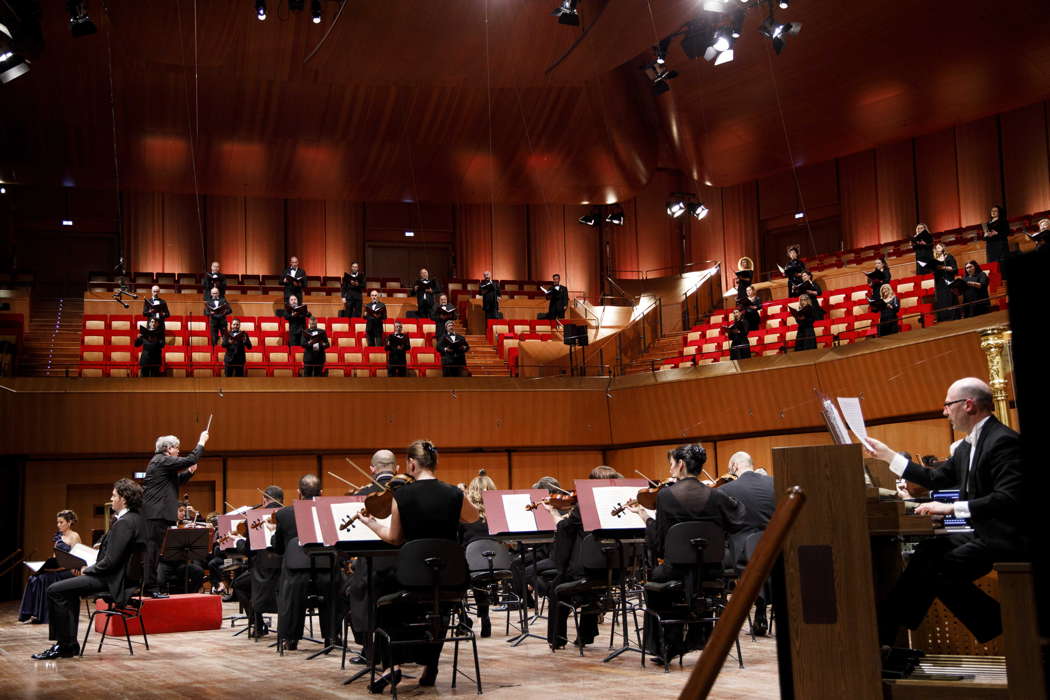
Antonio Pappano conducting Brahms in Rome. Photo © 2021 Riccardo Musacchio
The second concert was telecast, in prime time too, on 3 April. In Orvieto Cathedral, Zubin Mehta conducted the orchestra of the Maggio Musicale Fiorentino in a Mozart program: Symphony No 40, Krönungsmesse (The Crowning Mass) and Ave Verum. The soloists were soprano Eva Mei, mezzo Francesca Cucuzza, tenor Valentino Buzza and bass Emiliano Cordaro.
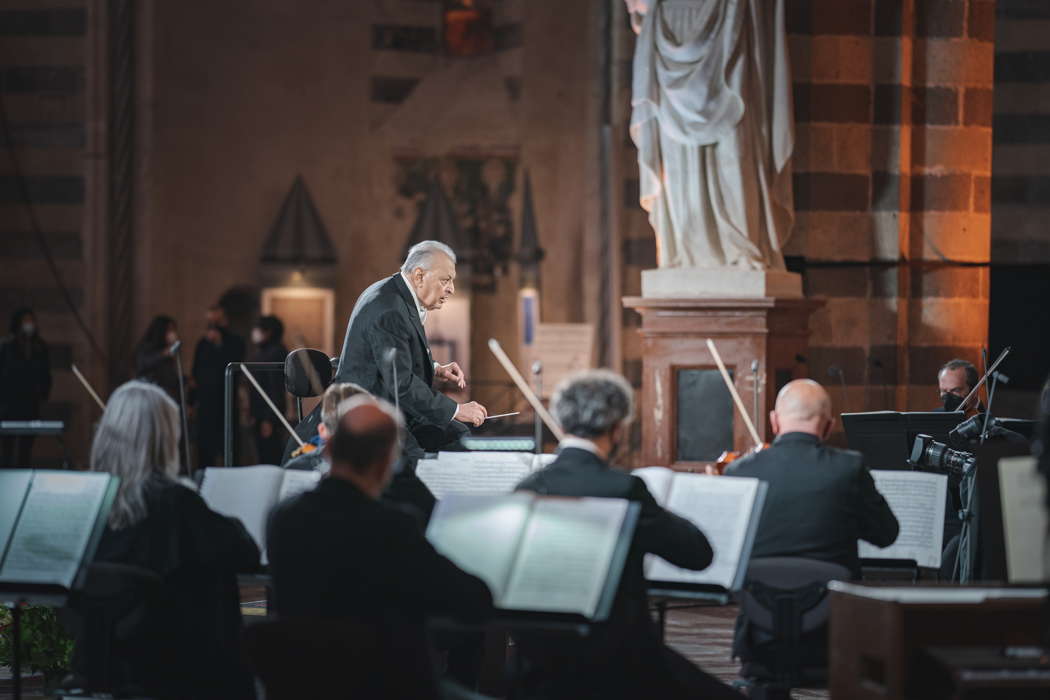
Zubin Mehta conducting in Orvieto Cathedral. Photo © 2021 Michele Monasta
Brahms assembled the Requiem libretto himself. The traditional Roman Catholic Requiem Mass employs a standardized text in Latin. Instead, Brahms derived the text from the German Luther Bible. Brahms' first known use of the title Ein deutsches Requiem was in an 1865 letter to Clara Schumann in which he wrote that he intended the piece to be 'eine Art deutsches Requiem' (a sort of German Requiem). Brahms was quite moved when he found out years later that Robert Schumann had planned a work of the same name. Germam refers primarily to the language rather than the intended audience. Brahms told Carl Martin Reinthaler, director of music at the Bremen Cathedral, that he would have gladly called the work 'Ein menschliches Requiem' (A human Requiem).
Although the Requiem Mass in the Roman Catholic liturgy begins with prayers for the dead - 'Grant them eternal rest, O Lord' - and is highly dramatic: think of Verdi, A German Requiem focuses on the living, beginning with the text 'Blessed are they that mourn, for they shall be comforted', from the Beatitudes. This theme - transition from anxiety to comfort - recurs in all the following movements except IV and VII: the central one and the final one. Although the idea of the Lord is the source of the comfort, the sympathetic humanism persists through the work. The orchestra conducted by Anthony Pappano, the chorus prepared by Piero Monti and the two soloists rendered this beautifully.
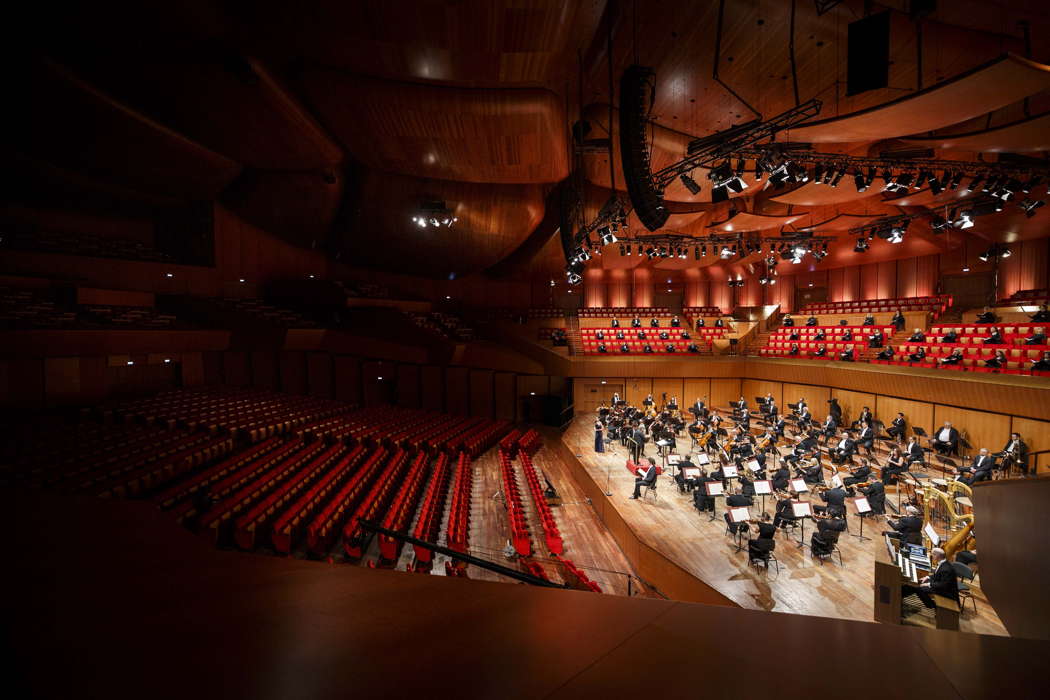
Brahms' Requiem in Rome. Photo © 2021 Riccardo Musacchio
The photos show how even without audience, the huge Santa Cecilia auditorium does fit well the serene atmosphere of this very special Requiem. The orchestra, the chorus and the soloists enveloped the virtual audience and delivered a message of consolation to all human beings. It was moving and engrossing, even seen and heard through the television.
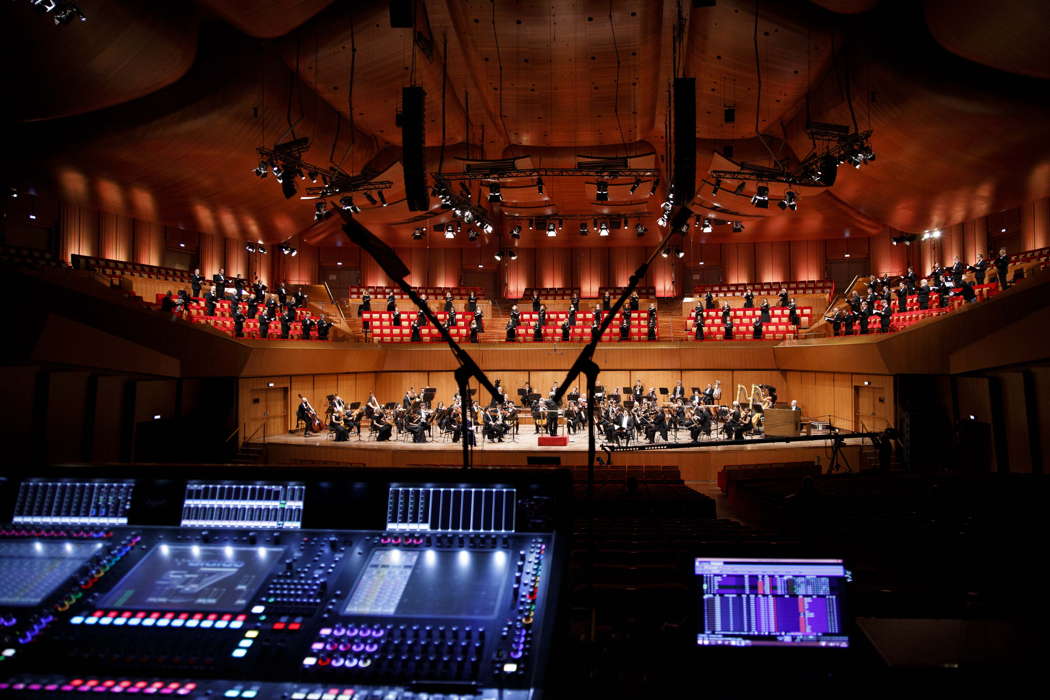
Brahms' Requiem in Rome. Photo © 2021 Riccardo Musacchio
The Mehta and Maggio Fiorentino concert included three well-known pieces by Wolfgang Amedeus Mozart. The photos show that without audience the enormous and rich Orvieto Cathedral was more stunning than usual.
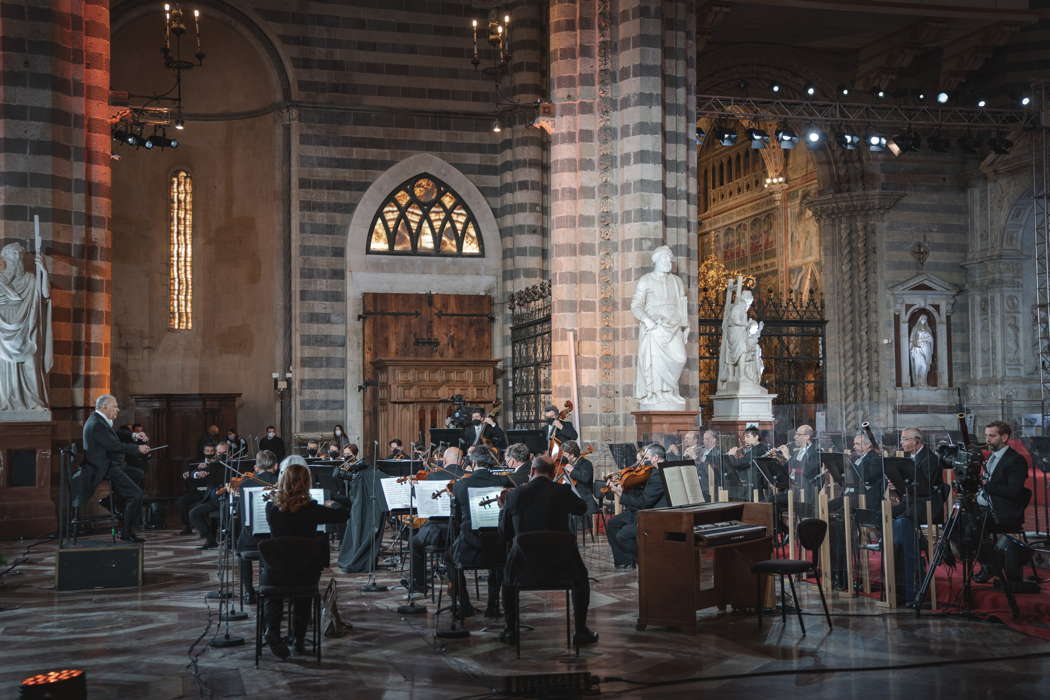
Mozart in Orvieto Cathedral. Photo © 2021 Michele Monasta
Mehta conducted Mozart's Symphony No 40 with lightness and transparency, almost to juxtapose it against the solemnity of Krönungsmesse, which Mozart composed at the age of twenty-three when he had returned to Salzburg at his father's request; he was suffering deeply because the Prince treated him as a servant. It is a composition less frequently performed than Symphony No 40. Mehta, the orchestra, soloists and chorus (prepared by Lorenzo Fratini) transmitted young Mozart's sorrow and, more significantly, the connections between this occasional piece and the theatrical works of the period - principally, Idomeneo, Re di Creta. The concert ended with the highly inspired Ave Verum anthem.
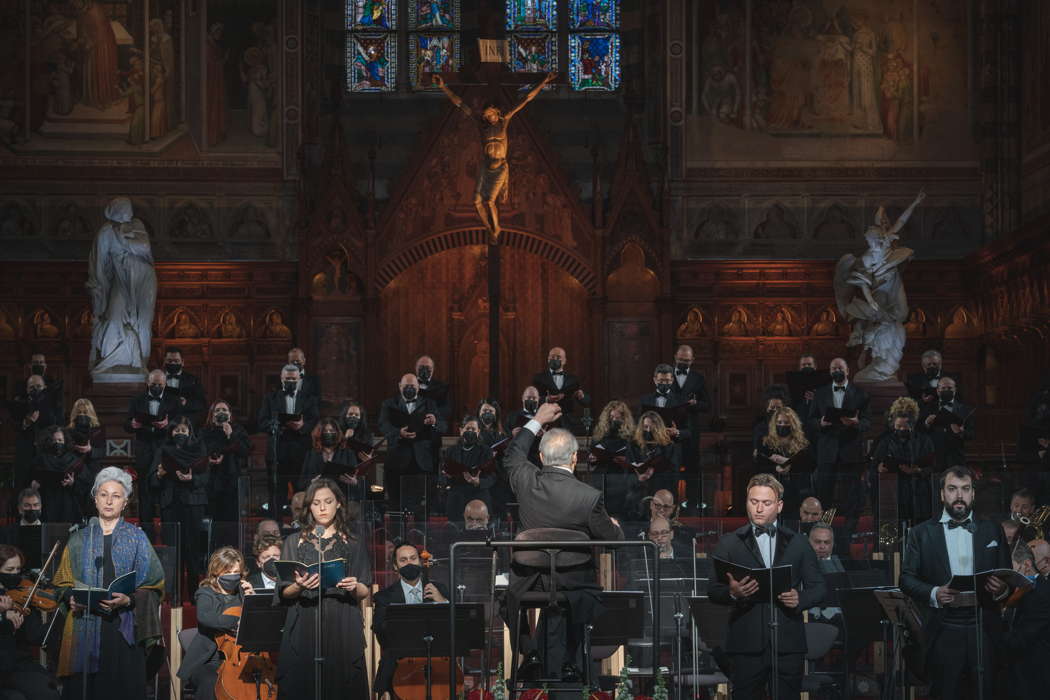
Mozart in Orvieto Cathedral. Photo © 2021 Michele Monasta
For the rest of the month, both concerts are available at raiplay.it for free, but after registration.
Copyright © 5 April 2021
Giuseppe Pennisi,
Rome, Italy




